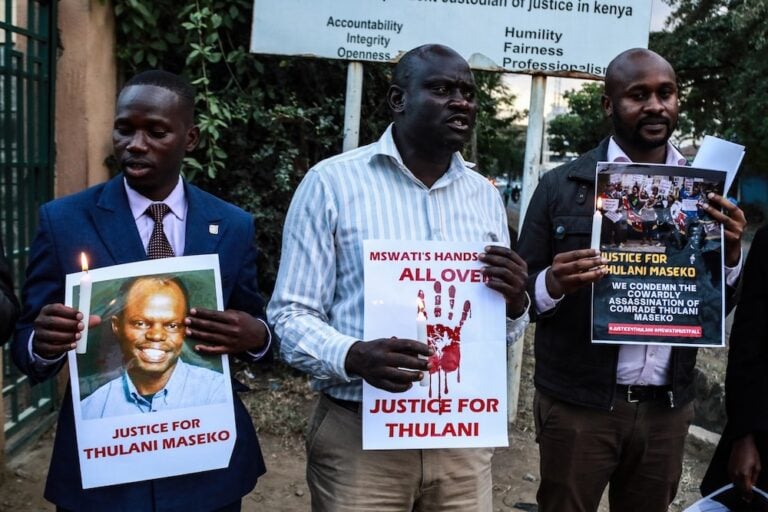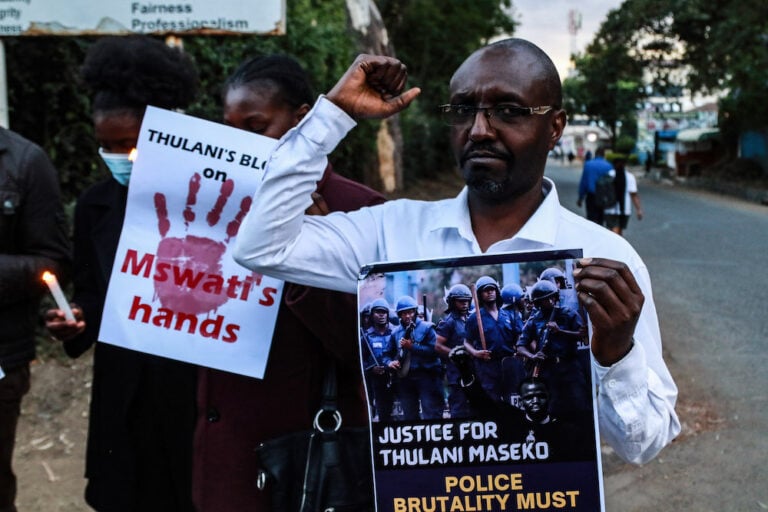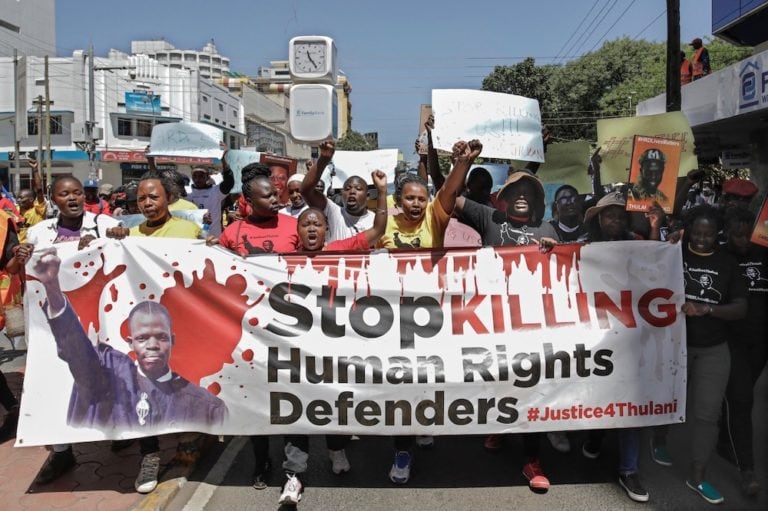(FXI/IFEX) – The following is an FXI media release: FXI CONDEMNS SWAZI GOVERNMENT’S ACTIONS AGAINST THE MEDIA The Freedom of Expression Institute is appalled at the manner in which journalists are being treated in Swaziland and finds it reminiscent of the way in which the apartheid government dealt with the press in the repressive climate […]
(FXI/IFEX) – The following is an FXI media release:
FXI CONDEMNS SWAZI GOVERNMENT’S ACTIONS AGAINST THE MEDIA
The Freedom of Expression Institute is appalled at the manner in which journalists are being treated in Swaziland and finds it reminiscent of the way in which the apartheid government dealt with the press in the repressive climate of that period. We strongly condemn the Swaziland government’s actions against the media. Journalists, including foreign journalists, are being harassed, threatened with detention under recently re-introduced detention without trial laws, and even deported. This makes their job of reporting on the fluid situation prevailing in Swaziland impossible. Only last month journalists were detained for four hours while trying to cover a controversial issue.
Since 1973 Swaziland has been without a constitution and efforts to democratise what is seen as an authoritarian monarchy have consistently met with resistance. The people however, have become impatient and the process of taking democracy forward has led to a strong mass-based pro-democracy movement. This in turn has led to draconian actions by the government.
Swaziland’s track record regarding media freedom is abysmal. There is currently only one independent newspaper, which is seen as becoming increasingly pro-government. In addition, the broadcast media and the national news agency are government owned.
Apart from the obvious contraventions of Article 19 of the Universal Declaration of Human Rights, the Swaziland government’s actions also fly in the face of the Windhoek Declaration on Promoting an Independent and Pluralistic African Press and the SADC draft protocol on culture, information and sport. The latter calls upon members countries to take steps to ensure the freedom and independence of the media and the free flow of information.
FXI wishes as well to register its abhorrence of the suppression of popular dissent by the banning of industrial action, a government warning that it would detain participants who defied that ban, plus the teargassing of students and the closure of the University of Swaziland. Only last week the entire executive of the Swaziland Federation of Trade Unions was detained at a roadblock as a way of deterring them from participating in a protest action.
The actions of the government have far-reaching effects for the Swazi people and it is obviously the government’s mistaken belief that by using repressive laws and action it will suppress information on pro-democracy activities. The reaction of the international community has proved otherwise and the very methods the Swazi government has deployed to suppress information has led to it becoming even more of an outcast in the region.


